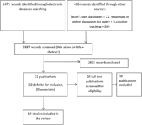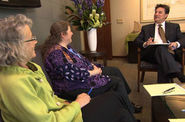-
About
- About Listly
- Community & Support
- Howto
- Chrome Extension
- Bookmarklet
- WordPress Plugin
- Listly Premium
- Privacy
- Terms
- DMCA Copyright
- © 2010-2025 Boomy Labs

 Beth Fahlberg
Beth Fahlberg
Listly by Beth Fahlberg

There is consensus that people who are frail or have a specific terminal diagnosis should be provided with opportunities to discuss their future care and treatment preferences. 1-3 Conversations about these matters form part of advance care planning discussions-these aim to help individuals anticipate how their condition may affect them in the future and, if they wish, to set on record their preferences, choices and advance decisions to refuse treatment.

Talking about dying isn't easy, but it's vitally important. Explore the Conversation Starter Kit and learn how to think about and talk about your wishes for end-of-life care.

Honoring Choices Minnesota hopes to inspire and support many community-based conversations regarding end-of-life care planning. We urge Minnesotans seeking to start such conversations in their family, faith, cultural or community group to use this 'toolkit' of video, text and web-links to support these conversations.

by: Laura Petrillo @lpetrillz After a recent family meeting, I received a piece of feedback from a social worker that took me by surprise: "You were very maternalistic in there, but it worked," she said. I reflected on the conversation we just stepped away from.

Honoring Choices Wisconsin is a major initiative to build system change, advocacy and education around advance care planning. Through Honoring Choices Wisconsin, the Society serves as convener, coordinator and catalyst to build clinical improvements combined with outreach in communities across the state.
On Wednesday, December 3rd, 2014 from noon to 1:30 PST, the California HealthCare Foundation will host a briefing to: Review the uptake of POLST in California Explore the potential benefits of a POLST registry Share results from Oregon's successful POLST registry Discuss the fi[...] Read more "

What kind of medical care would you want if you were too ill or hurt to express your wishes? Advance directives are legal documents that allow you to spell out your decisions about end-of-life care ahead of time. They give you a way to tell your wishes to family, friends, and health care professionals and to avoid confusion later on.

Wish 1: The Person I Want to Make Health Care Decisions for Me When I Can't Wish 2: The Kind of Medical Treatment I Want or Don't Want Wish 3: How Comfortable I Want to Be Wish 4: How I Want People to Treat Me Wish 5: What I Want My Loved Ones to Know Five Wishes is an easy to use legal document written in everyday language that lets adults of all ages plan how they want to be cared for in case they become seriously ill.

Advance care planning is not just about old age. At any age, a medical crisis could leave someone too ill to make his or her own healthcare decisions. Even if you are not sick now, making healthcare plans for the future is an important step toward making sure you get the medical care you would want, even when doctors and family members are making the decisions for you.

by: Alex Smith, @AlexSmithMD As it's early in the year, we usually like to post about some advice for trainees, particularly fellows that are new to our geriatrics and palliative care services. This year, let's focus on the goal of the first visit.

"I want everything done. Please, Dr. Rousseau, do everything. We have two children-they can't be without their father. Do you understand? Do what it takes to keep him alive!" Angie, a petite woman with long blonde hair, fixes me with piercing blue eyes. Her husband, Joe, fifty-two, has scleroderma, an autoimmune disease.
I'm at the Stanford Medicine X conference, which provides much food for thought. Here's tonight's musings, based on an assumption which is quite prevalent among patient-centered health care folk...

Together, patients and health care teams clarify all acceptable options, ensure that both parties are well informed, and choose a course of care consistent with the patient's values and preferences as well as the best available medical evidence.

Wall Street Journal: As acceptance of end-of-life planning grows in the U.S., new concerns are emerging about how well patients and their doctors understand the forms they are signing about the care they want in their final days.

Voicing My Choices is an advance care planning guide for adolescents and young adults living with a serious illness.
